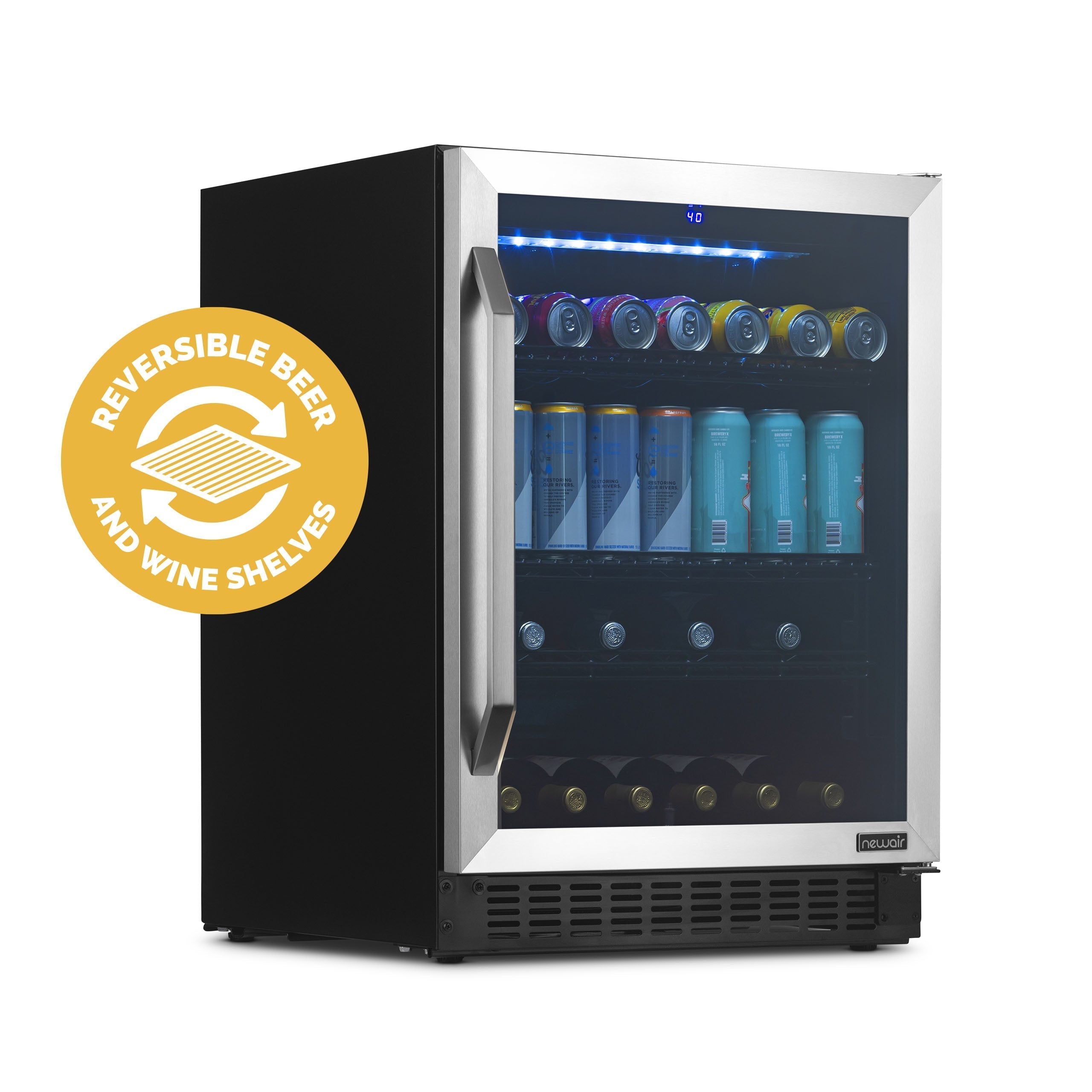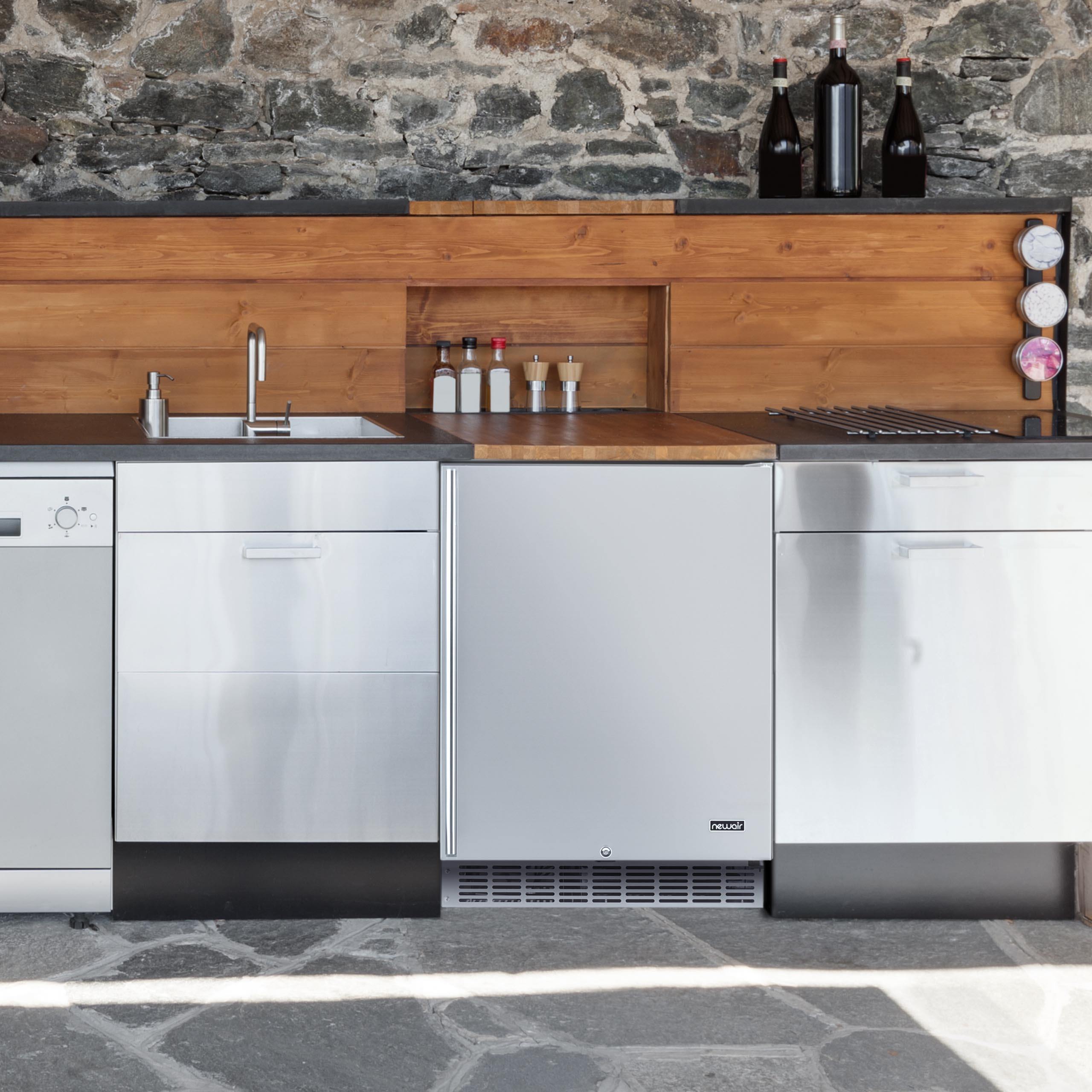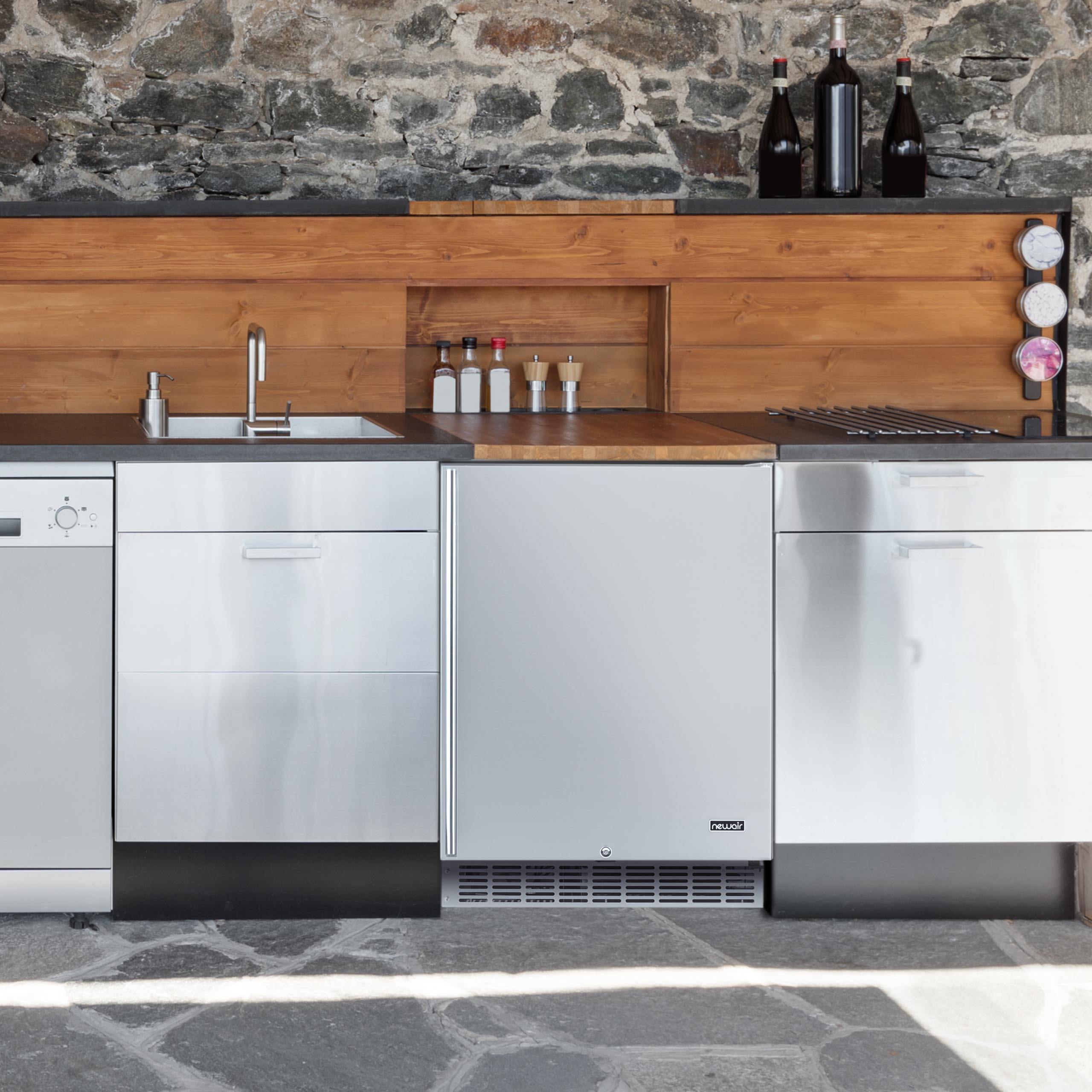Can an outdoor refrigerator run during winter?
When temperatures drop well below the thermostat range of your refrigerator, is it safe to run it? Will harsh winter weather damage a fridge? The short answer to these questions is, it depends.
A fridge has a hard time functioning when the outside air is colder than the inside air of the fridge. Why is this the case? A fridge compressor kicks in when the internal temperature rises above or drops below the set temperature on the thermostat. Winter weather can trick the compressor into thinking it doesn’t need to activate in order to cool (or heat) the contents of the fridge. This confusion doesn’t cause damage to your fridge; however, it does result in spoiled food and beverages.
There is an even harsher side to cold temperatures you also need to be aware of when it comes to your fridge. Extremely cold conditions may freeze the oil in the compressor, making it too thick to circulate. If your run your fridge continuously while this is happening, you also run the risk of burning out the compressor.
But there are ways around these cold weather risks. Consider the following questions when determining if it is safe for you to run your refrigerator during winter or not.
Is the refrigerator for your garage or outdoor kitchen?
If your refrigerator or beverage fridge is for your outdoor kitchen, then you will have to monitor the outdoor weather conditions regularly. An outdoor-rated beverage fridge will do a better job at handling fluctuating temperatures, but you still need to be aware of extreme conditions that will affect the function of the compressor.
When it comes to your garage, you have more control over the safety of your fridge. If your garage is insulated, and has a thermostat of its own, you can make sure your fridge isn’t working overtime to accommodate for the drastic, or extreme changes in outside temperature. Even if your garage isn’t properly insulated, you can opt for a garage heater to help regulate the environment surrounding your fridge.
Will my fridge be OK if it is weatherproof?
A fridge that is outdoor rated, and thus weatherproof, is more equipped to withstand and run in winter conditions; however, the compressor is still challenged when temperatures drop to and stay at extreme degrees.
An outdoor fridge needs to be 304 food grade stainless-steel or higher to be considered weatherproof. The high-grade material resists rust and corrosion. Most outdoor fridges also come with additional weatherproofing features, such as door and bearing seals to protect against rain, snow, heat or debris.
Store your outdoor rated fridge in peace, even in wet or snowy conditions, but do not run your fridge when winter is relentless over the course of several months.
When in Doubt, Don’t Run the Risk
Unless a fridge is kept in the stable conditions of your garage, winter weather runs the risk of damaging its compressor.
You can keep your outdoor refrigerator or beverage cooler safely stored in your backyard patio or outdoor kitchen—despite living in rainy and snowy locations. Just be sure it is emptied and unplugged during times when you know it won’t be used it for weeks or months at a time. That way, you know your fridge will have a long life.







0 comments